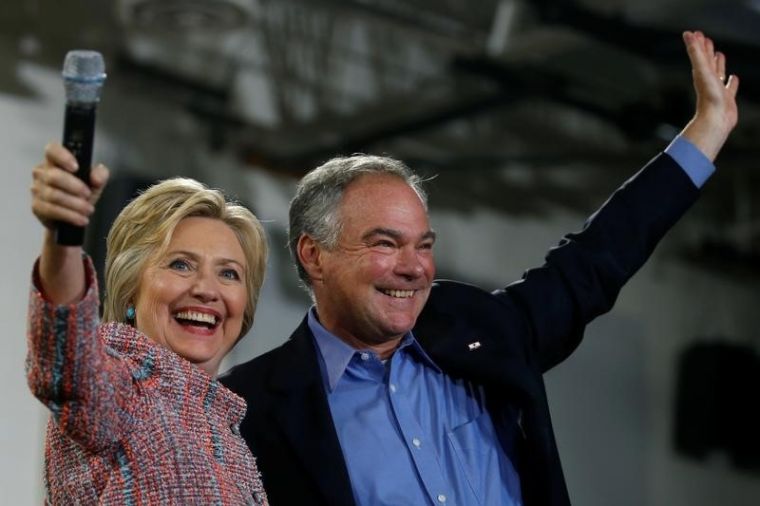Evangelicals and top Christian leaders meet Clinton in series of 'listening sessions'
Hillary Clinton's advisors and supporters have met with top evangelical and Catholic leaders in Washington recently for "listening sessions" to discuss policies for the Democrat presidential hopeful.
The closed-door sessions, each for about a dozen religious leaders, were not aimed at gaining support but on hearing concerns and recommendations on issues such as refugees, poverty and international aid. The first was organised as early as June 23 and have continued throughout July.

"The goal of both meetings has been to a) learn about the priorities of people of faith engaged in humanitarian work b) work with supportive leaders to help get them and their communities involved in our field organizing efforts in Virginia and elsewhere," a Clinton campaign spokesperson told TIME.
A representative from the United States Conference of Catholic Bishops went to one of the early forums and said "we are open to meeting with both parties around development issues". He said the discussion encouraged religious perspectives on policy ideas.
Deborah Fikes, former permanent representative to the United Nations for the World Evangelical Alliance, who has endorsed Clinton, also attended a session.
"It truly was a listening session that offered substantive discussions with our feedback from faith organizations in the Middle East, with people on the ground working in some of the most critical locations with refugees and IDPs," said Fikes.
"I was encouraged that senior advisers to Hillary Clinton really understand the importance of the world that faith groups do in all aspects of American foreign policy and value and respect our advices."
Steve Roese, co-founder of Water is Basic in South Sudan with Bishop Elias Taban, said: "It is very encouraging, as somebody who is deeply involved in helping the marginalized, that a campaign would take time to listen."
Galen Carey, vice president of government relations for the National Association of Evangelicals, said "new orthodoxies" on social issues such as gay marriage could squeeze conservative religious groups out.
"Most of the humanitarian work in Africa, like schools and hospitals, were started mostly by missionaries, including a lot of evangelicals," said Carey.
"If the government tries to impose ideological constraints on civil society groups, then we could be written out of the picture, and that would be a lose-lose, certainly for our organizations, but much more importantly for the work that needs to be done."











